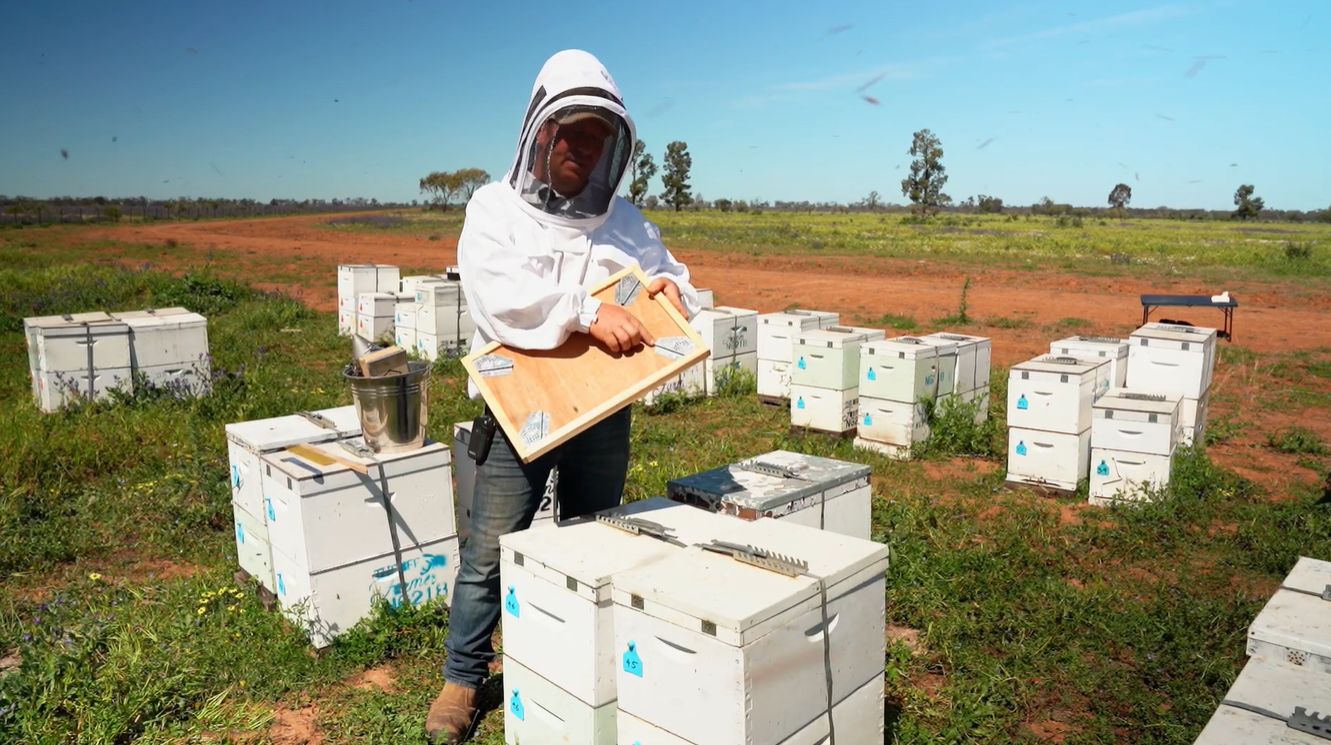How to Become a Beekeeper in Australia
Plenty of people have idle daydreams about becoming beekeepers, but few leap to real-live hives. This blog will help you to understand some of the basics around getting started with beekeeping in Australia.
If you’re ready to make your beekeeping dreams a reality, spring and summer is the best time to start beekeeping – so it’s not too late to get organised.
Here’s how to get started in Beekeeping:
- Learn the bee basics
- Follow local rules & regulations
- Get geared up
- Buy your bees
- Install your colony
Learn the bee basics
Although you’ll learn as you go, getting your head around basic bee knowledge will help make that first year go smoothly. Read books, articles and beekeeping blogs, learn local rules and regulations and join beekeeping Facebook groups or online forums.
Be sure to check out our Beekeeping 101 resources blog, and YouTube channel too!
Joining your local bee club is a good way to meet fellow beekeepers and get local information. Some bee clubs run beginner sessions and even take novice keepers out to observe real hives in action – you’ll find that seeing real bees is far more effective than reading about them. If you’re lucky, you may find a beekeeping mentor through a local bee club who will offer support and advice as you get started.
Follow local rules and regulations
To minimise the risk of spreading disease and protect the honey industry, beekeeping is strictly regulated in Australia. Hives must be registered with your state or territory, and you may need to pay a fee in some areas. In most places, you are required to clearly label your hives and keep them accessible in case state examiners want to inspect them.
When your hives are up and running, the Beekeeping Code ofPractice requires that you keep a close watch for signs of pests or disease, and keep a detailed record of your observations. If pests or diseases do emerge, you’re expected to treat the hives appropriately – or exterminate the colony in certain cases.
Get geared up
Beginner beekeepers need a lot of gear initially - but like most hobbies, the initial investment is the largest part and there are many items that you only need to purchase once for yourself whether you have 1 or multiple hives.
A bee suit, including hat, veil, gloves and boots, is essential for new beekeepers – many have learnt that the hard way. A hive tool, smoker, queen catcher and feeder will also make your job easier.
When it comes to the hive, you have a few choices. In Australia, Langstroth hives, also called vertical hives, are the most common.
Buy your bees
Once you’ve bought and assembled your hive, the last step is getting a colony to fill it. There are a few ways to acquirebees in Australia – you can buy a package of bees that will develop into a colony, buy a nucleus colony that’s already partially established, capture a swarm or even purchase a working hive from another beekeeper.
However you do it, it’s best to get started in spring or summer so your bees have plenty of time to settle in and build their honey stores for winter.
Install your colony
Packaged bees and nucleus colonies often come with a marked queen bee – this is a huge help for beginner beekeepers. When you get your bees, put the queen into the hive first. She needs to stay in her cage for the first little while so she can release pheromones and keep the other bees from leaving the hive. Most temporary queen cages are closed with a plug of sugar, which the queen and other bees will eat through in a couple of days.
Next, gently shake the box containing your bees over your hive with frames and foundation. They will fall into the body of the hive and settle there. Shut the lid, leave your bees alone for two or three days – then check to make sure the queen has been released and the bees are still around. Feeding a new hive at this stage is a good idea to encourage comb building and egg laying.
If everything looks good, it’s official: you’re now a real-live beekeeper.
Want to know more about beekeeping for beginners? Take a look at ourlearning resources now.

